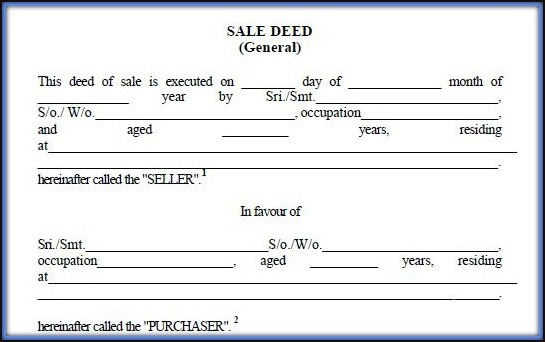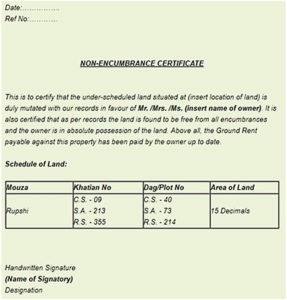Thinking about the documents to be verified before buying a plot or apartment? There are several land documents to check before buying a flat or home and you should keep these aspects in mind without a doubt. Knowing more about these documents will help you stay on top of the entire home or land buying procedure. Also, it is vital to be legally on the right foot while investing in a future asset.
15 important property documents to verify prior to buying
| Required Documents | For Under Construction Property | For Ready To Move Property | ||
| Fresh/ Primary Sale | Re-sale/ Secondary Sale | Fresh/ Primary Sale | Re-sale/ Secondary Sale | |
| ATS | Yes | Yes | ||
| Application Form | Yes | Yes | ||
| Plan for Building Approval | Yes | Yes | ||
| Allotment Letter | Yes | Yes | Yes | Yes |
| Builder Buyer Agreement | Yes | Yes | Yes | Yes |
| Payment Receipts | Yes | Yes | Yes | Yes |
| Possession Letter | Yes | Yes | ||
| Builder NOC | Yes | Yes | ||
| Sale Deed | Yes | Yes | Yes | Yes |
| Trailing Sale Chain Deed | Yes | |||
| Mutation | Yes | Yes | ||
| Encumbrance Certificate | Yes | Yes | ||
| Commencement Certificate | Yes | Yes | ||
| Completion Certificate | Yes | |||
| Occupancy Certificate | Yes | |||
1. ATS (Agreement to Sell) (Ready to Move/Under Construction)
Vital before the drafting of the sale deed, the ATS is the document containing terms and conditions for selling the property as agreed between the seller and buyer. This also notifies the property’s agreement value and the amount funded as the loan for any resale property will be a particular percentage of the agreement value or market value of the property whichever is lesser.
2. Plan for Building Approval (Under-Construction)
These plans are sanctioned by the development or planning authorities for specific regions. Without the building approval plan, the construction will be deemed illegal. A building approval plan is sanctioned on the basis of several aspects:
- Floor area ratio or FAR
- Road width
- Zonal classification
- Depth of plot
- Documents including property assessment extract, title deed, city survey sketch, PID number of property, property drawings, foundation certificate
- Other documents required include updated tax paid receipts, previously sanctioned plans if they exist, two demand draft copies and land use certificate
Building owners should have registered architects working to create the plan under requisite bye-laws and regulations.
3. Allotment Letter (Under Construction/Ready to Move)
This is the letter which confers the property allotment to the buyer from the requisite authority or society in question. This is one of the primary documents that you should possess by all means.
4. Builder-Buyer Agreement (Under-Construction/Ready to Move)
This is another vital document which is the legal contract between buyers and builders. In case developers do not maintain the construction timeline or any other promises, this is the document that buyers can rely on. This is the document which covers the construction timeline, cost escalation clauses, payment delays and proceedings and so on.
5. Payment Receipts (Under Construction/Ready to Move)
The payment receipt is the proof of you having paid the token money or initial advance to the developer. The payment receipt may be printed on Rs. 10 or Rs. 2 stamp paper depending on the State. The developer or seller may sign on the revenue stamp for acknowledging the payment that has been received. All signed payment receipts should be kept by the buyer in this regard.
6. Possession Letter (Ready to Move- New & Resale)
The possession letter is the document that is ussed in favour of the property buyer by the real estate developer. This document will state the possession date for the property and also has the time period prior to which the final payment has to be made by the property owner who can then take possession of the home.
7. Builder NOC (Ready to Move/Under-Construction Resale)
Builder NOC (No Objection Certificate) is required whenever any resale property (both ready to move or under construction) is being sold. This is the vital document which enables direct transfer of under construction property to the buyer. Buyers can enter tri-party agreements with sellers on the basis of the builder NOC in this case.
8. Sale Deed (Under-Construction/Ready-to-move)
The sale deed is one of the most important documents required for land purchases. This is the document which works as the proof of the sale and transfer of property ownership from the seller/developer to the buyer in question. The sale deed is required to be compulsorily registered. Prior to the execution of the sale deed, the sale agreement should be executed by both parties and there should be a thorough check done of the terms and conditions agreed upon by the seller and buyer. Prior to the execution of the sale deed, buyers should check for a clear title and whether there are any encumbrance charges over the property in question.

Before the execution of the sale deed, the seller is required to settle the following charges and costs-
- Water charges
- Property taxes
- Cess
- Electricity charges
- Society charges
- Maintenance charges
9 . Trailing Sale Chain Deed (Ready to Move Resale)
This basically refers to the entire chain of transactions or sales for a property. The original sale deed is required from the earlier owners of the property. This will help you trace the property ownership and you should watch out for missing documents. Properties with clear documentation will always have better prospects and the chain of earlier agreements with past owners and original registration receipts and original letter of allotment to the first owner by the authorities are essential.
10. Mutation Document (Ready to Move post registration)
This document has all information about the property which includes name of owner, property location, size and other vital details.
11. Encumbrance Certificate (Ready to Move)
Encumbrance equates to liabilities/ownership charges on properties which are held as security for a home loan. The EC will have registered transactions done for a property in the period for which it is required. Obtaining this requires a sale deed copy and Form 22 should be filled with a non-judicial stamp affixed on the same.

12. Commencement Certificate (Under-Construction)
This is applicable in case of properties which are under construction. This is the legal document from local authorities post site inspection. This document mentions that the project adheres to all necessary criteria and mandates the beginning of construction on the project site. Not having this certificate makes any construction illegal.
13. Completion Certificate (Ready to Move)
The completion certificate has to be obtained in case of properties which have been constructed. This is issued by municipal authorities which indicates that buildings comply with regulations covering distance from road, height and construction as per the approved building plan.
14. Occupancy Certificate (Ready to Move)
Applicable for constructed properties, applying for the occupancy certificate leads to an inspection by authorities to check whether construction adheres to all regulations. Post the inspection and construction completion, this certificate is issued.
To put it in a nutshell, here are the documents required across under-construction and ready to move properties.




